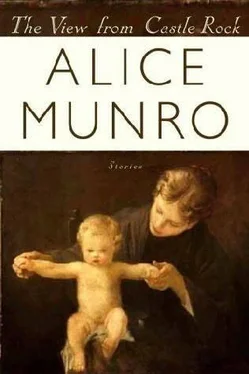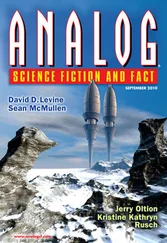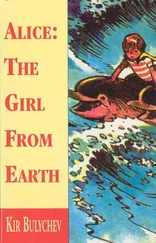He said to my mother that he was thinking of joining the Army. He was thinking of pelting and selling all his stock, and going into the Army as a tradesman. He was not too old for that, and he had skills which would make him useful. He could be a carpenter-think of all the building he had done around his place. Or he could be a butcher-think of all the old horses he had slaughtered and cut up for the foxes.
My mother had another idea. She suggested that they keep out all the best skins, not sending them to the auctions but having them tanned and dressed-that is, made into scarves and capes, provided with eyes and claws-and then take them out and sell them. People were getting some money now. There were women around who had the money and the inclination to get dressed up. And there were tourists. We were off the beaten track for tourists, but she had heard about them, how the hotel resorts of Muskoka were full of them. They came up from Detroit and Chicago with money to spend on bone china from England, Shetland sweaters, Hudson’s Bay blankets. So why not silver-fox furs?
When it comes to changes, to invasions and upheavals, there are two kinds of people. If a highway is built through their front yard, some people will be affronted, they will mourn the loss of privacy, of peony bushes and lilacs and a dimension of themselves. The other sort will see an opportunity-they will put up a hotdog stand, get a fast-food franchise, open a motel. My mother was the second sort of person. The very idea of the tourists with their American money flocking to the northern woods filled her with vitality.
In the summer, then, the summer of 1941, she went off to Muskoka with her trunkload of furs. My father’s mother arrived to take over our house. She was still an upright and handsome woman and she entered my mother’s domain magnificent with foreboding. She hated what my mother was doing. Peddling. She said that when she thought of American tourists all she hoped was that none of them ever came near her. For one day she and my mother were together in the house and during that time my grandmother withdrew into a harsh and unforthcoming version of herself. My mother was too steamed up to notice. But after my grandmother had been in charge on her own for a day she thawed out. She decided to forgive my father his marriage, for the time being, also his exotic enterprise and its failure, and my father decided to forgive her the humiliating fact that he owed her money. She baked bread and pies, and did well by the garden vegetables, the new-laid eggs and the rich milk and cream from the Jersey cow. (Though we had no money we were never badly fed.) She scoured the inside of the cupboards and scraped away the black on the bottom of the saucepans, which we had believed to be permanent. She ferreted out many items in need of mending. In the evenings she carried pails of water to the flower border and the tomato plants. Then my father came up from his work in the barn and the fox pens and we all sat out on yard chairs, under the heavy trees.
Our nine-acre farm-no farm at all as my grandmother saw things-had an unusual location. To the east was the town, the church towers and the tower of the Town Hall visible when the leaves were off the trees, and on the mile or so of road between us and the main street there was a gradual thickening of houses, a turning of dirt paths into sidewalks, an appearance of a lone streetlight, so that you might say we were at the town’s farthest edges, though beyond its legal municipal boundaries. But to the west there was only one farmhouse to be seen, and that one far away, at the top of a hill almost at the midpoint in the western horizon. We always referred to this as Roly Grain’s house, but who Roly Grain might be, or what road led to his house, I had never asked or imagined. It was all too far away, across, first, a wide field planted in corn or oats, then the woods and the river flats sloping down to the great hidden curve of the river, and the pattern of overlapping bare or wooded hills beyond. It was very seldom that you could see a stretch of country so empty, so seductive to the imagination, in our thickly populated farmland.
When we sat looking out at this view my father rolled and smoked a cigarette, and he and my grandmother talked about the old days on the farm, their old neighbors, and funny things-that is, both strange and comical things-that had happened. My mother’s absence brought a sort of peace-not only between them, but for all of us. Some alert and striving note was removed. An edge of ambition, self-regard, perhaps discontent, was absent. At the time, I did not know exactly what it was that was missing. I did not know either what a deprivation, rather than a relief, it would be for me, if that was gone for good.
My younger brother and sister pestered my grandmother to let them look into her window. My grandmother’s eyes were a hazel color, but in one of them she had a large spot, taking up at least a third of the iris, and the color of this spot was blue. So people said that her eyes were of two different colors, though this was not quite the truth. We called the blue spot her window. She would pretend to be cross at being asked to show it, she would duck her head and beat off whoever was trying to look in, or she would screw her eyes shut, opening the plain hazel one a crack to see if she was still being watched. She was always caught out in the end and gave in to sitting still with eyes wide open, being looked into. The blue was clear, without a speck of any other color in it, a blue made brighter by the brownish-yellow at its edges, as the summer sky is by the puffs of clouds.
It was evening by the time my father turned into the hotel driveway. We drove between the stone gateposts and there it was ahead of us-a long stone building with gables and a white veranda. Hanging pots overflowing with flowers. We missed the turn into the parking lot and followed the semicircular drive, which brought us in front of the veranda, driving past the people who sat there on swings and rockers, with nothing to do but look at us, as my father said.
Nothing to do but gawk.
We spotted the inconspicuous sign and found our way to a gravel lot next to the tennis court. We got out of the car. It was covered with dust and looked like a raffish interloper amongst the other cars there.
We had travelled the whole way with the windows down and a hot wind blowing in on us, tangling and drying my hair. My father saw that there was something wrong with me and asked me if I had a comb. I got back into the car and looked for one, finding it at last wedged down against the back of the seat. It was dirty, and some teeth were missing. I tried, and he tried, and finally he said, “Maybe if you just shoved it back behind your ears.” Then he combed his own hair, frowning as he bent to look in the car mirror. We walked across the lot, with my father wondering out loud whether we should try the front or the back door. He seemed to think I might have some useful opinion about this-something he had never thought in any circumstances before. I said that we should try the front, because I wanted to get another look at the lily pond in the semicircle of lawn bounded by the drive. There was a statue of a bare-shouldered girl in a tunic draped closely against her breasts, with a jug on her shoulder-one of the most elegant things I had ever seen in my life.
“Run the gauntlet,” my father said softly, and we went up the steps and crossed the veranda in front of people pretending not to look at us. We entered the lobby, where it was so dark that little lights were turned on, in frosted globes, high up on the dark shiny wood of the walls. To one side was the dining room, visible through glass doors. It was all cleaned up after supper, each table covered with a white cloth. On the other side, with the doors open, was a long rustic room with a huge stone fireplace at the end of it, and the skin of a bear stretched on the floor.
Читать дальше












